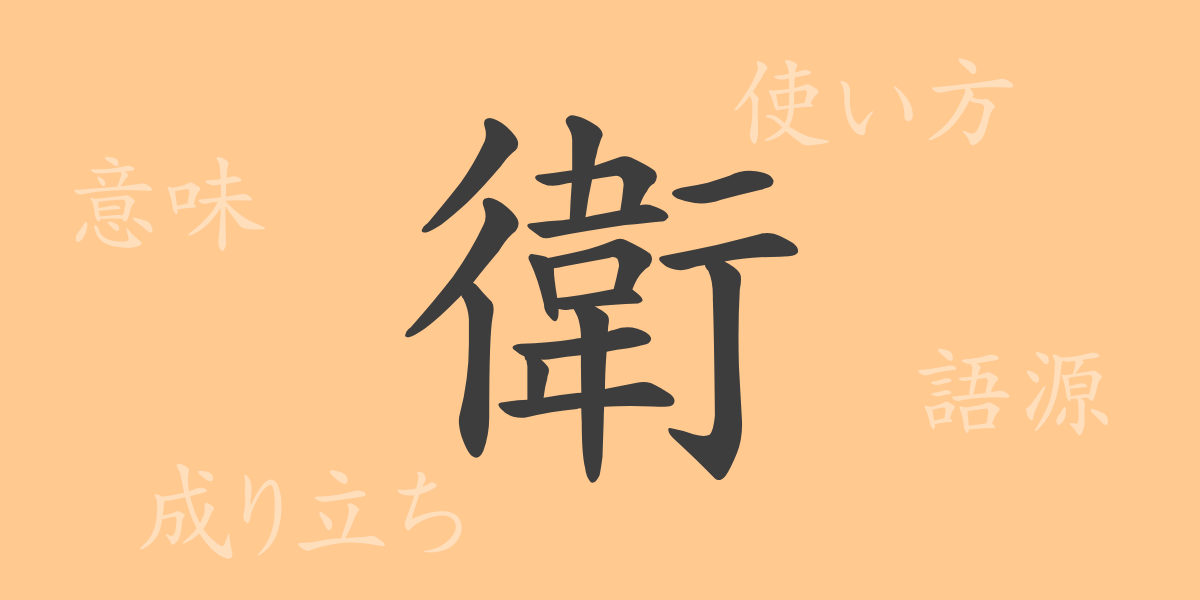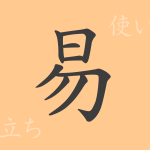“
In the written Japanese language, kanji are essential elements for conveying meaning. “”衛”” (Ei), one of the common kanji, is a character that we frequently encounter in our daily lives. In this article, we will delve into the origin, meaning, usage, and even everyday compound words of “”衛,”” unraveling its rich history and applications.
The Origin of 衛 (Ei)
The kanji “”衛”” has its roots in ancient Chinese documents. It is said to have originated from the ancient Chinese state of Wei, initially used as a place name. Later, it became widely used as a character representing the meanings of defense and protection. Its form consists of a combination of “”戍”” (Ju), representing a person fighting with weapons, and “”彳”” (Teki), meaning a walking person, symbolizing the act of protecting something through fighting.
The Meaning and Usage of 衛 (Ei)
“”衛”” carries the meanings of defense, protection, and maintenance. It is primarily used when referring to actions, functions, organizations, or facilities related to protecting people or things. For example, as seen in words like hygiene (Eisei) and satellite (衛星, Eisei), it is commonly used in relation to maintaining cleanliness or objects orbiting around something.
Reading, Stroke Count, and Radical of 衛 (Ei)
“”衛”” has several readings in Japanese.
- Reading: The on’yomi reading is “”エイ”” (Ei), and the kun’yomi reading is “”まもる”” (Mamoru).
- Stroke Count: The total stroke count of “”衛”” is 16.
- Radical: Its radical is “”行部”” (Gyoubu).
Compound Words, Idioms, and Proverbs Using 衛 (Ei) and Their Meanings
There are numerous compound words and idioms containing “”衛,”” each with its own unique meaning. Here are a few examples:
- 衛星 (Eisei): A celestial body orbiting the Earth or other planets. It also refers to a small country or organization subordinate to a larger one.
- 衛生 (Eisei): A state of cleanliness for maintaining health and preventing diseases, or the study of such practices.
- 衛兵 (Eihei): Guards assigned to protect important individuals or facilities.
- 衛星都市 (Eiseitoshi): A small-scale city located near a large city, functioning within its economic sphere.
Conclusion on 衛 (Ei)
The kanji “”衛”” has a long history, with its form and meaning originating from ancient China, and it is used in various fields in modern Japanese. Symbolizing the concepts of defense and protection, this character allows us to recognize its value anew in modern society, where hygiene and safety are highly valued in daily life. Our surroundings are filled with words containing “”衛,”” such as satellite and hygiene, each playing an important role in our lives.
“

























